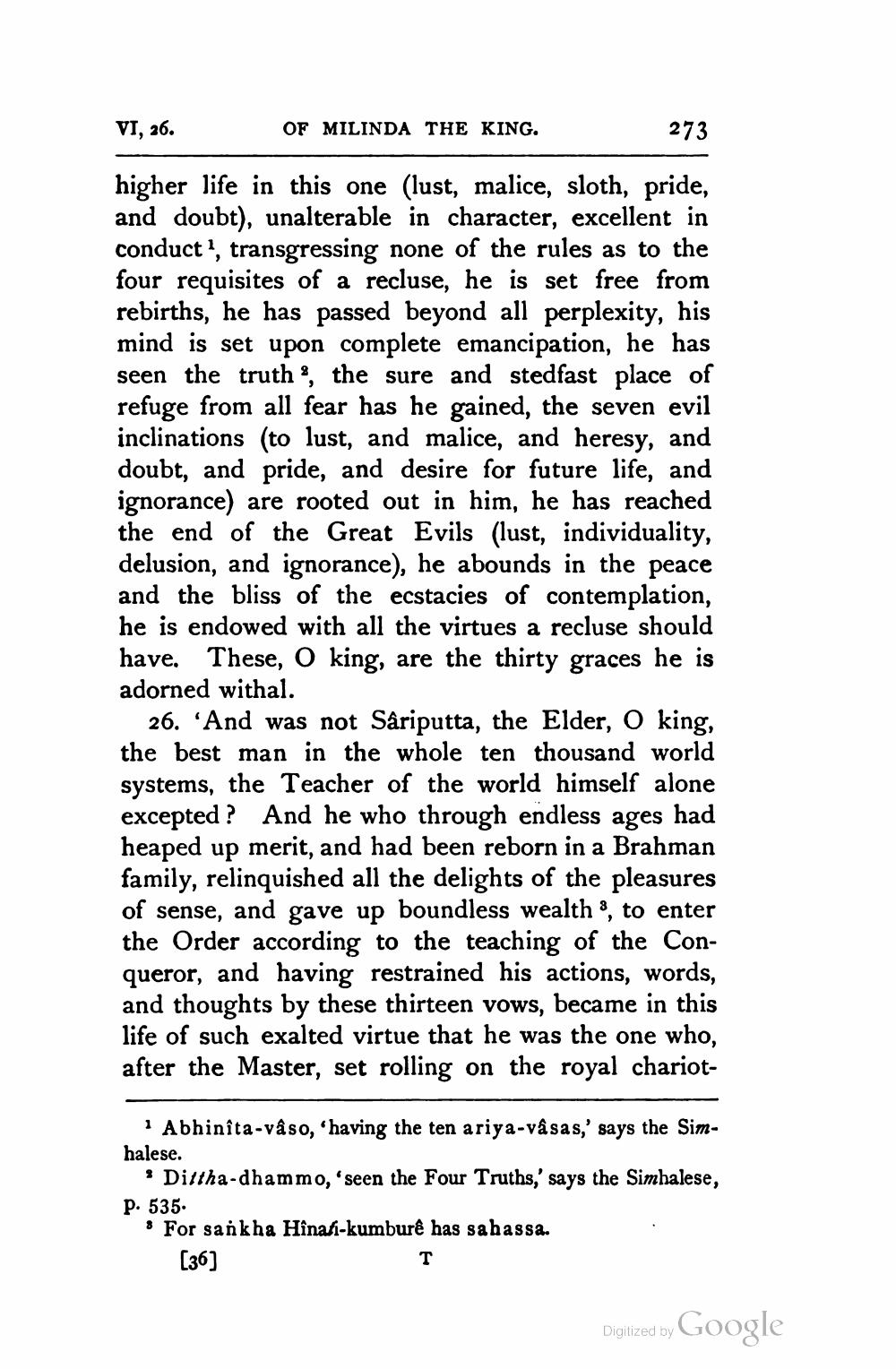________________
273
higher life in this one (lust, malice, sloth, pride, and doubt), unalterable in character, excellent in conduct1, transgressing none of the rules as to the four requisites of a recluse, he is set free from rebirths, he has passed beyond all perplexity, his mind is set upon complete emancipation, he has seen the truth, the sure and stedfast place of refuge from all fear has he gained, the seven evil inclinations (to lust, and malice, and heresy, and doubt, and pride, and desire for future life, and ignorance) are rooted out in him, he has reached the end of the Great Evils (lust, individuality, delusion, and ignorance), he abounds in the peace and the bliss of the ecstacies of contemplation, he is endowed with all the virtues a recluse should have. These, O king, are the thirty graces he is adorned withal.
VI, 26.
OF MILINDA THE KING.
26. 'And was not Sâriputta, the Elder, O king, the best man in the whole ten thousand world systems, the Teacher of the world himself alone excepted? And he who through endless ages had heaped up merit, and had been reborn in a Brahman family, relinquished all the delights of the pleasures of sense, and gave up boundless wealth, to enter the Order according to the teaching of the Conqueror, and having restrained his actions, words, and thoughts by these thirteen vows, became in this life of such exalted virtue that he was the one who, after the Master, set rolling on the royal chariot
1 Abhinîta-vâso, 'having the ten ariya-vâsas,' says the Simhalese.
Dittha-dhammo, 'seen the Four Truths,' says the Simhalese,
For sankha Hînafi-kumburê has sahassa.
[36]
T
p. 535.
Google
Digitized by




